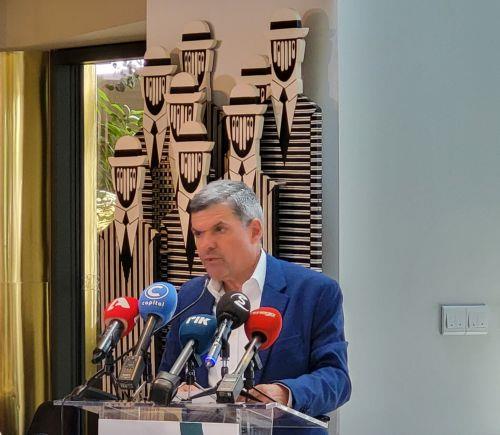By Elias Hazou and Iole Damaskinos
Speculation was ongoing on Monday as to the fate of consumers regarding electricity costs as deliberations between the electricity authority (EAC) and the energy regulatory authority (Cera) continued.
Speaking to the state broadcaster CyBC, Energy Minister George Papanastasiou sought to address concerns about Cera’s impending decisions.
“[Unpredictable] circumstances can overturn budget predictions and when they fall short of the mark, the EAC may go to Cera to negotiate recouping its costs,” the minister noted.
At the start of last year the EAC had requested from the energy regulator approval to raise their tariffs by an amount that would have translated into a 13 per cent increase on electricity bills. Cera rejected the request, with the EAC subsequently appealing the rejection with the administrative court.
Cera had at the time thrown out that request, citing the “public interest” – the high cost of living in general.
A decision from the administrative court could take years.
Now, for the year 2024, the EAC has asked for an increase in tariffs translating into an approximate 6 per cent hike on electricity bills. But following the government’s recent intervention, the EAC agreed to take another look at its numbers.
EAC spokesperson Christina Papadopoulou told us that the EAC board, having convened last Saturday to discuss the matter, will reconvene again on Tuesday.
“The board may or may not take a final decision on Tuesday,” she said.
Papadopoulou explained that at the beginning of every fiscal year the EAC submits to Cera its audited accounts for the past two years. Depending on its revenues and expenses, the EAC asks for a readjustment of its tariffs, as it needs to recoup its costs and investments.
The regulator is presented with the EAC’s operating expenses and determines which ones can legitimately be passed onto the consumer.
The request for 2024 for a 6 per cent increase (on electricity bills) would apply for the whole of 2024, Papadopoulou said.
She also pointed out that, after the regulator had turned down the EAC’s tariff request for 2023, the tariffs charged for 2023 remained the same as those charged in 2022.
Asked to comment on media reports, the spokesperson clarified that the EAC is “considering” withdrawing its appeal at the administrative court – it has not done so yet.
The only item that the EAC has leeway to change dynamically – independently of Cera – is the fuel readjustment rate, adjusted month to month, depending on the purchase price of fuel.
Regarding the EAC’s other request to the energy regulator – to install two new internal combustion engines at the Dhekelia power plant – Papadopoulou said the regulator is in the process of considering the request.
That request was filed in November 2023. In addition to the two engines, the state-run power utility also asked to install a new storage unit at Dhekelia.
Papadopoulou said these planned upgrades at Dhekelia – entailing big costs – should not be directly linked to the EAC’s other request to ditch its shares in the natural gas infrastructure company.
The EAC holds a 30 per cent stake in the natural gas infrastructure company (Etyfa) – an investment of €43 million. It now wants to cash out – divesting itself from Etyfa and the LNG terminal project.
“The investments we plan at Dhekelia are costed at about €120 million, whereas our shares in Etyfa are worth €43 million,” noted Papadopoulou.
She said their request to withdraw from Etyfa was made to the energy minister. They’re still waiting for a response.
On the same issue, the energy minister said Monday that in order for the EAC to sell its shares, approval will need to be sought at the EU level.
That’s because the LNG terminal project – owned by Etyfa – is co-funded by the European Commission.
“If the amount is returned it could provide the means for the EAC to invest in Dhekelia which is of critical and immediate importance,” said Papanastasiou. In this case, the ministries of finance and energy may engineer a state purchase of the EAC’s shares.
The largest costs for the EAC are the cost of fuel and emissions, and payroll, Papanastasiou noted. He added that the EAC cannot be held responsible for the fact that natural gas is not yet available as a fuel.
“At the end of the day the two organisations [Cera and the EAC] must answer to society and take decisions based on the common good,” the minister said.







Click here to change your cookie preferences